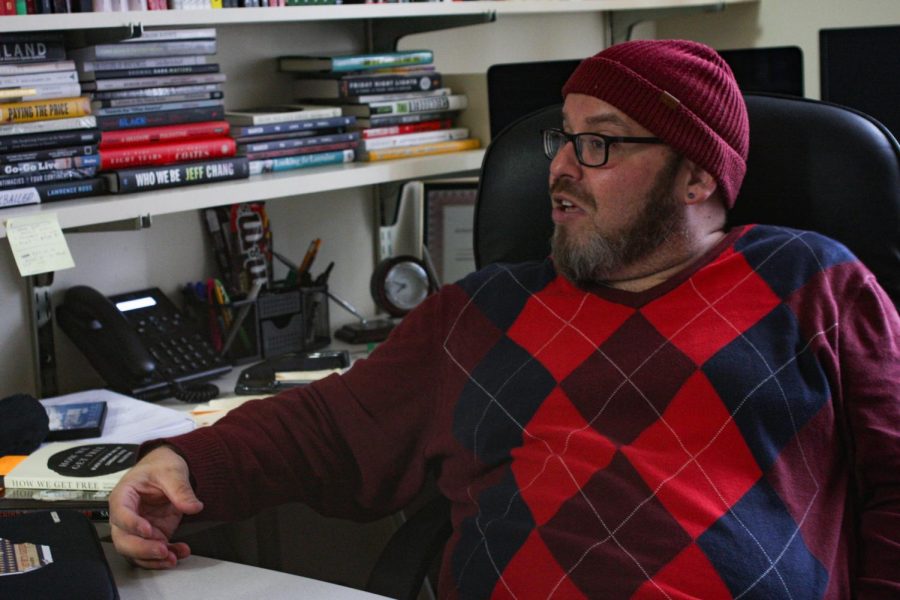Forced diversity hurts equality
More must be done to encourage healthy attitudes toward people who are different for them to succeed
JACQUI THOMASSON | THE DAILY EVERGREEN
Professor David J. Leonard speaks about diversity in the modern era Wednesday in Thompson Hall. Leonard said that when voting reflects the population, diversity among political leaders increases and that diversity is created culturally.
November 13, 2018
Diverse demographics provide perspectives that homogeneous groups simply cannot. Many, if not all, organizations should seek potential members and promote people of all backgrounds.
However, this concept is only viable among qualified candidates who are equal in many other aspects.
Forcing diversity sets integration back. Elevating unqualified people of any background or demographic only sets this group back if they fail rather than advancing them like intended.
As a society, we need to create equality in opportunity from the ground up rather than prematurely thrusting someone into an inopportune position.
This framework is already enacted in many places. The results show as the most diverse class of incoming legislators was just elected and a plethora of other qualified candidates narrowly lost. State governments also saw a new diverse class including the first openly gay governor in the U.S., Jared Polis, D-Colorado.
This is not always the situation for some organizations, and many see incompetent leaders make mistakes as they were only given their position because of demographics. Racial and gender minorities should not be treated as token supporters and putting these people on display only sets movements back rather than highlighting diversity.
David J. Leonard, an author and professor at WSU, believes cultural changes need to happen before organic diversity can truly thrive.
“We need to have a conversation about, ‘What are the obstacles for diversity and equity?’ ” Leonard said. “ ‘What are the obstacles that make the lack of diversity normalized?’ ” The first step in supporting diversity is creating an environment where people have an equal chance of success from a young age rather than realizing a problem exists after the damage has been done.
If infrastructure that supports diversity only exists on a professional level, an opportunity for growth is missed at a young age.
Diversity should be created at a cultural level instead of only filling a quota of diverse employees, Leonard said.
Creating a diverse environment takes more than reformed early development to achieve. Many power structures need to be altered so people of diverse backgrounds can be successful in them.
Currently many institutions have gentrified power structures where even the voices of high-ranking minorities are not truly heard because the system is not made for them. By expanding the way minorities are perceived at these institutions, diversity becomes a smoother integration and its strength will be properly utilized.
Alexandria Ocasio-Cortez, who was elected to represent New York’s 14th Congressional District, made headlines when she said she cannot afford to move to Washington D.C. for her newly elected position until she starts getting paid for it.
This seemingly harmless statement actually drew criticism from some members of the media, rather than praise for becoming the youngest female congresswoman in history despite limited financial resources.
Antonio Delgado, who was elected to represent New York’s 19th Congressional District, was referred to as a “Rapping Dem” by a New York Post article, rather than referring to his impressive list of accomplishments including his accolades as a Rhodes Scholar.
Diversity comes in many forms and should be embraced for how it challenges the status quo just as it is celebrated for how it fits in. Creating a society where all kinds of people like 2018 midterm candidates Stacy Abrams, Andrew Gillum, Beto O’Rourke and many others are able to succeed makes society better.
Even in losses, these people show the strength in diversity by increasing political awareness, increasing voter turnout and inspiring many others to challenge the status quo by taking a path untraveled.

















